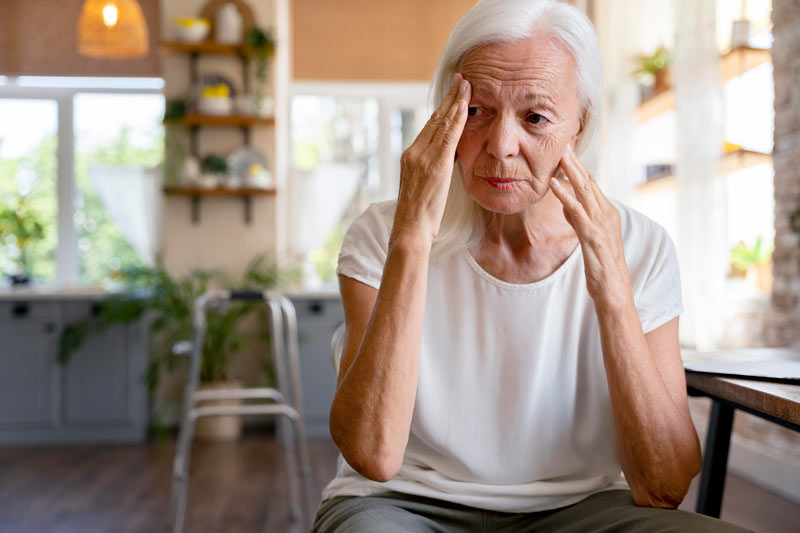Effective Strategies to Alleviate Geriatric Anxiety
July 19, 2023interborough
Geriatric anxiety is a prevalent concern among older adults, affecting their mental well-being and overall quality of life. As individuals age, they may encounter various stressors, such as health issues, life transitions, or social isolation, which can contribute to heightened anxiety levels. However, there are effective strategies available to alleviate geriatric anxiety and promote a sense of calm and well-being in seniors. By implementing these strategies, seniors can enhance their mental health and enjoy a more fulfilling and relaxed life.
Understanding Geriatric Anxiety and its Impact on Seniors’ Mental Health
Geriatric anxiety refers to the experience of excessive worry, fear, or unease among older adults. It is a common mental health concern that can have a significant impact on seniors’ overall well-being. As individuals age, they may face various challenges such as physical health issues, cognitive changes, or life transitions, which can contribute to heightened anxiety levels. These anxiety symptoms can manifest in different ways, including restlessness, irritability, difficulty concentrating, sleep disturbances, and even physical symptoms like muscle tension or headaches.
The impact of geriatric anxiety on seniors’ mental health should not be underestimated. Persistent anxiety can lead to a decreased quality of life, impaired functioning, and increased risk of developing other mental health conditions, such as depression. It can also exacerbate existing physical health conditions, further compromising overall wellness. Additionally, geriatric anxiety may interfere with social relationships, limit engagement in enjoyable activities, and contribute to a sense of isolation or loneliness.
Recognizing the impact of geriatric anxiety on seniors’ mental health is crucial for developing effective strategies to alleviate and manage these symptoms. By gaining a deeper understanding of the unique challenges faced by older adults and the specific ways anxiety affects them, we can tailor interventions and support systems that promote mental well-being in this population.
Professional Support for Geriatric Anxiety
Seeking professional support is a vital step in addressing and managing geriatric anxiety effectively. Mental health professionals, such as therapists, psychologists, or psychiatrists, play a crucial role in providing specialized care and guidance for older adults experiencing anxiety symptoms. These professionals possess the expertise to assess and diagnose anxiety disorders, tailoring treatment plans to meet the unique needs of seniors.
Therapy and counseling can be invaluable tools in helping older adults navigate and overcome geriatric anxiety. Cognitive-behavioral therapy (CBT), for example, is a widely used approach that focuses on identifying and challenging negative thought patterns and behaviors associated with anxiety. Through CBT, seniors can learn coping strategies, stress management techniques, and relaxation exercises to reduce anxiety symptoms and improve their overall well-being.
In some cases, medication management may also be considered as part of the treatment plan for geriatric anxiety. Psychiatrists can evaluate the need for prescription medications and provide appropriate recommendations. It’s important to note that medication should be prescribed and monitored by a healthcare professional experienced in geriatric mental health to ensure its effectiveness and minimize any potential side effects.
Lifestyle Changes to Manage Geriatric Anxiety
Making certain lifestyle modifications can significantly contribute to managing geriatric anxiety and promoting overall well-being in older adults. While professional support is crucial, incorporating these changes into daily routines can enhance the effectiveness of anxiety management strategies.
Regular physical activity is one lifestyle change that can have a positive impact on geriatric anxiety. Engaging in exercises such as walking, swimming, or yoga not only promotes physical health but also helps reduce anxiety symptoms. Physical activity releases endorphins, which are natural mood-boosting chemicals in the brain, promoting a sense of calm and relaxation. Seniors should consult with healthcare professionals to determine appropriate exercises based on their abilities and any underlying health conditions.
Another essential lifestyle change to manage geriatric anxiety is maintaining social engagement and fostering support networks. Seniors benefit from staying connected with family, friends, and their community. Engaging in social activities, participating in group outings, or joining clubs or organizations can provide a sense of belonging, decrease feelings of isolation, and offer opportunities for emotional support. Building and maintaining a support system is crucial in times of anxiety, as it enables seniors to share their concerns, seek advice, and receive reassurance from individuals who understand and care about their well-being.
Complementary and Alternative Approaches to Geriatric Anxiety
In addition to professional support and lifestyle changes, exploring complementary and alternative approaches can offer additional avenues for managing geriatric anxiety in older adults. While these approaches may not replace traditional treatments, they can be valuable as adjuncts to existing strategies.
One option to consider is herbal remedies and supplements known for their calming properties. Certain herbs, such as chamomile, valerian root, or lavender, have been traditionally used to promote relaxation and reduce anxiety. However, it’s essential to exercise caution and consult with a healthcare professional before trying any new herbal remedies or supplements. They can provide guidance on potential interactions with existing medications and recommend appropriate dosages to ensure safety and effectiveness.
Relaxation techniques can also be beneficial in alleviating geriatric anxiety. Practices such as aromatherapy, massage therapy, or acupuncture have shown promise in promoting relaxation and reducing anxiety symptoms in older adults. Aromatherapy involves using essential oils with calming scents, while massage therapy focuses on manipulating muscles and promoting relaxation. Acupuncture involves the insertion of thin needles into specific points on the body, aiming to restore the body’s energy balance. These techniques can provide seniors with a soothing and calming experience, contributing to overall anxiety reduction.